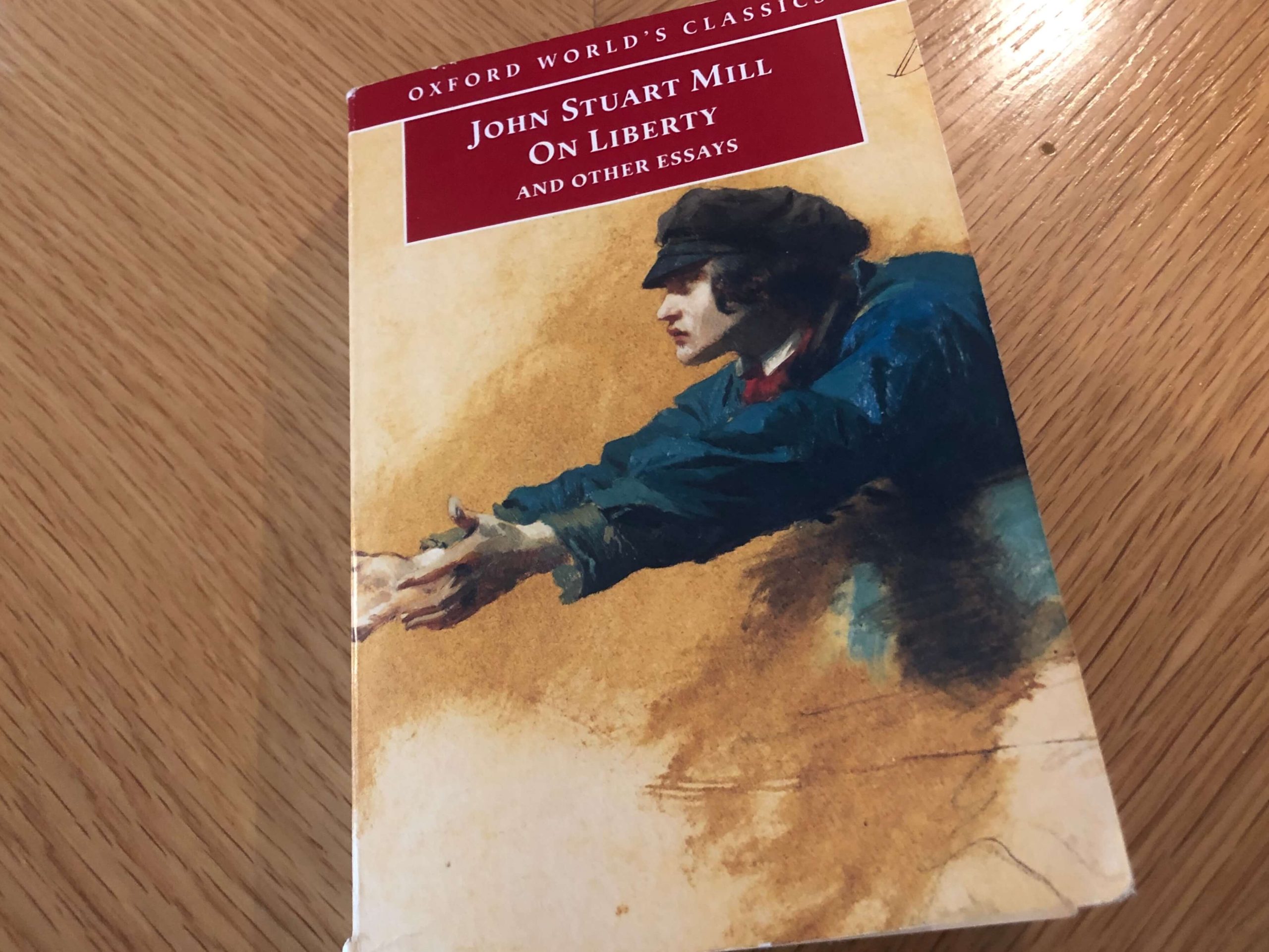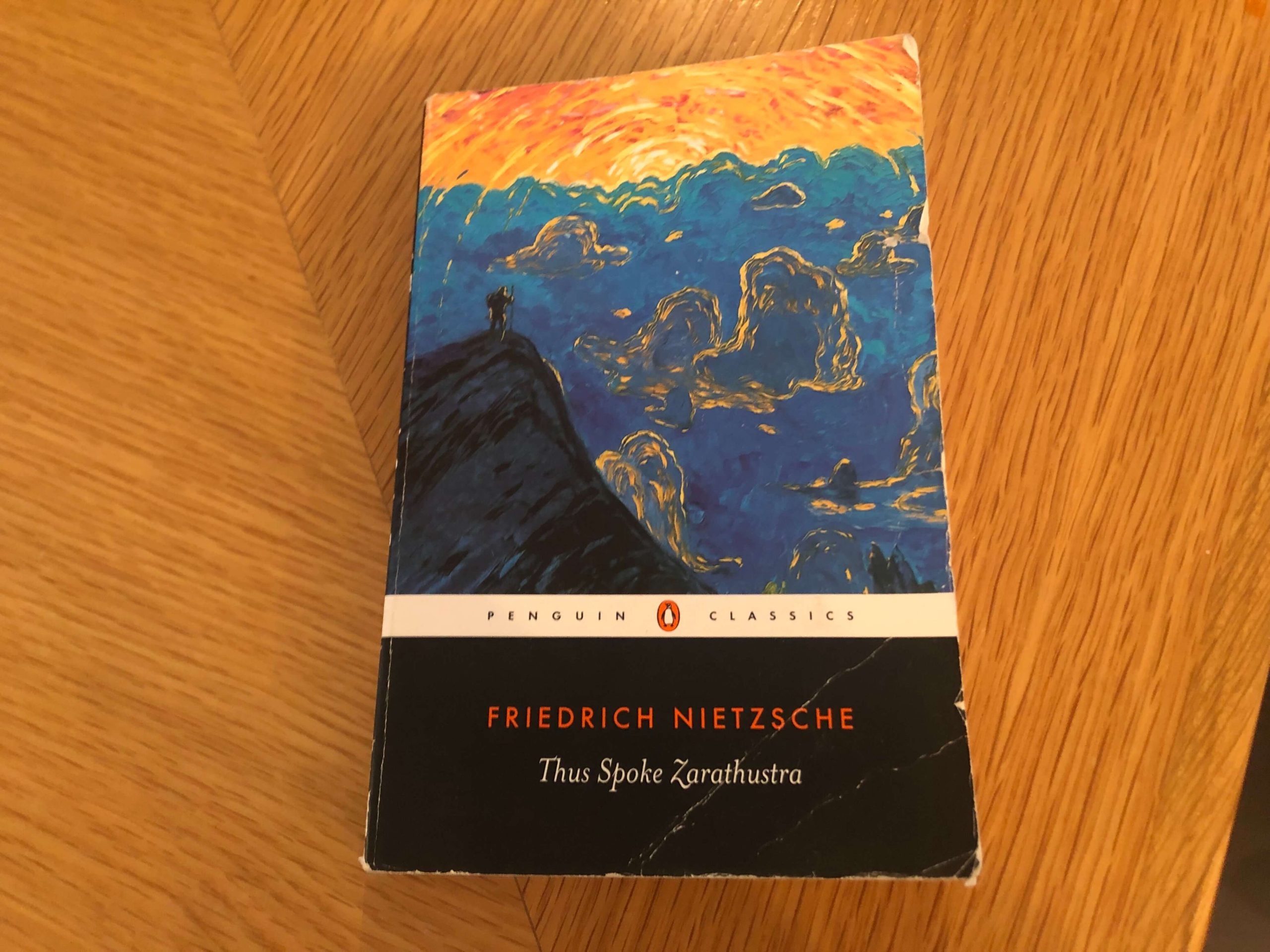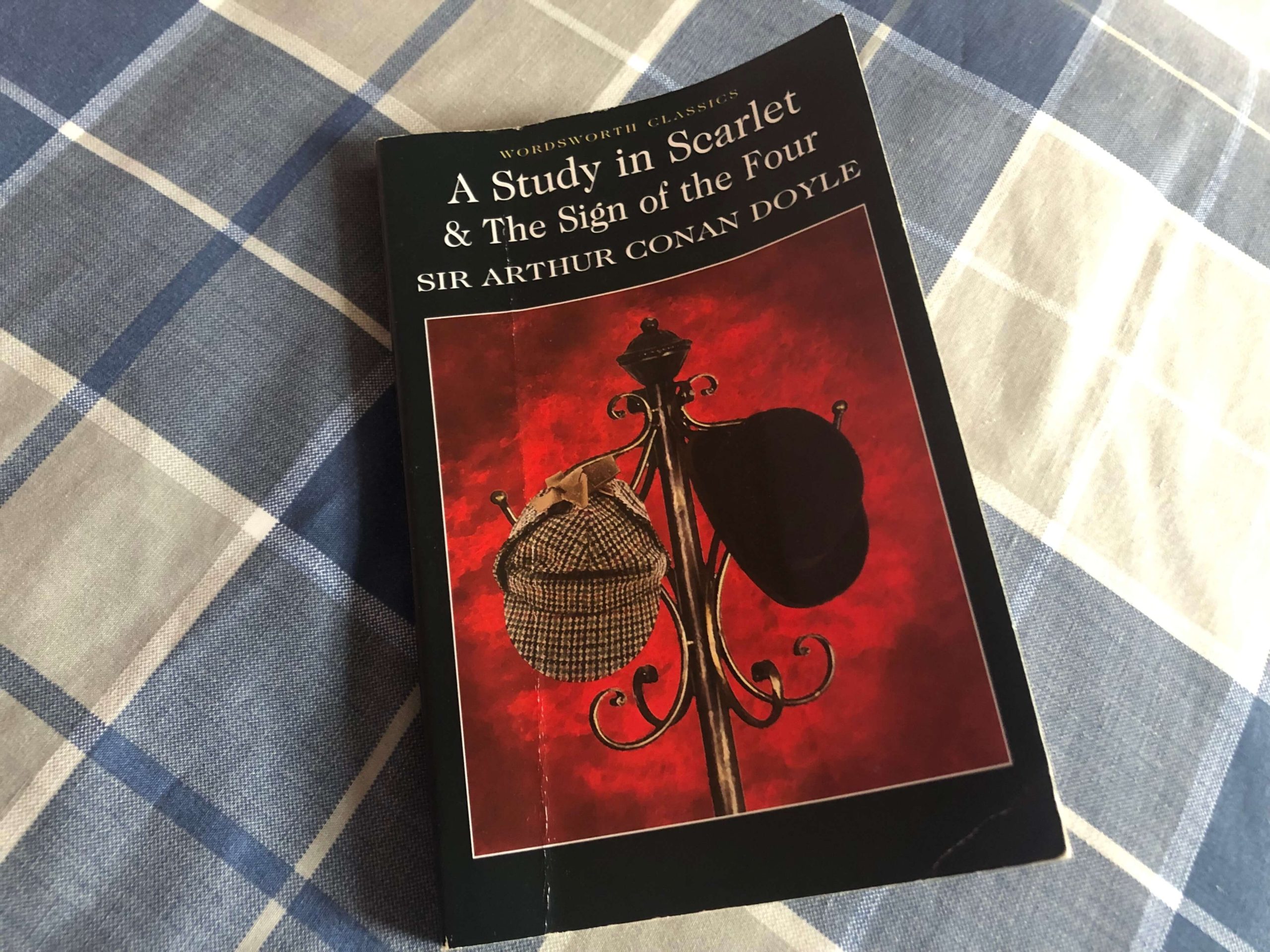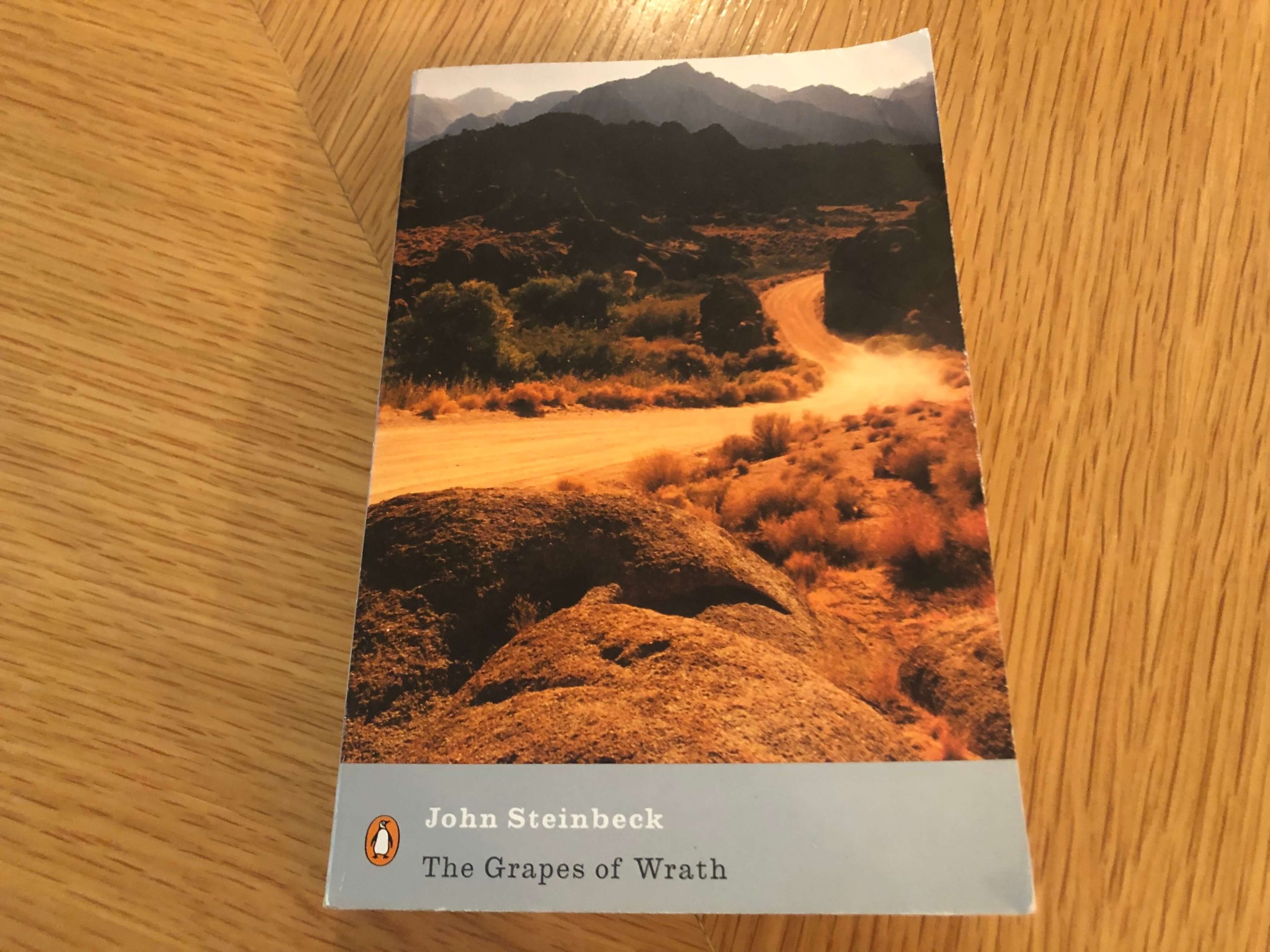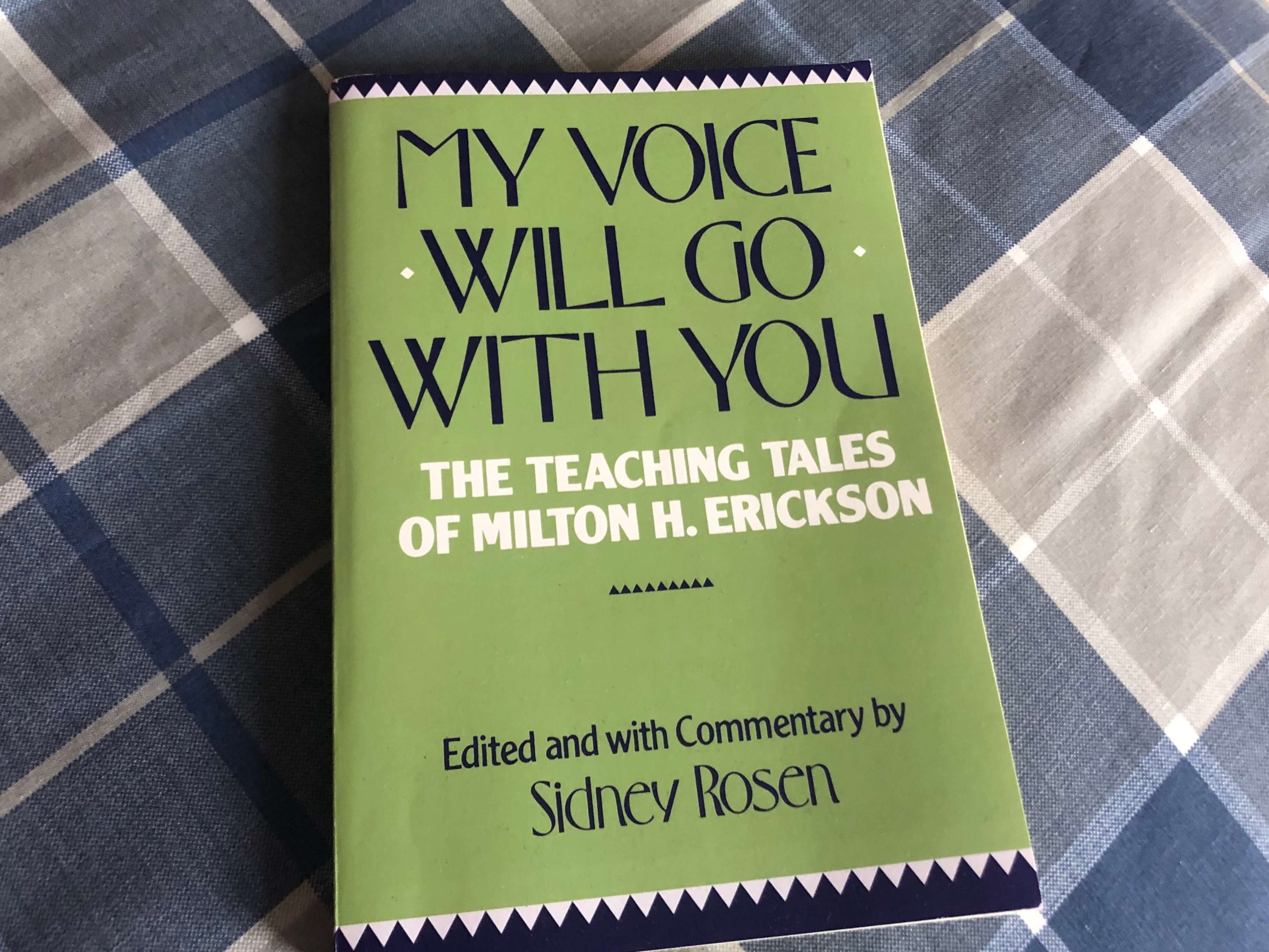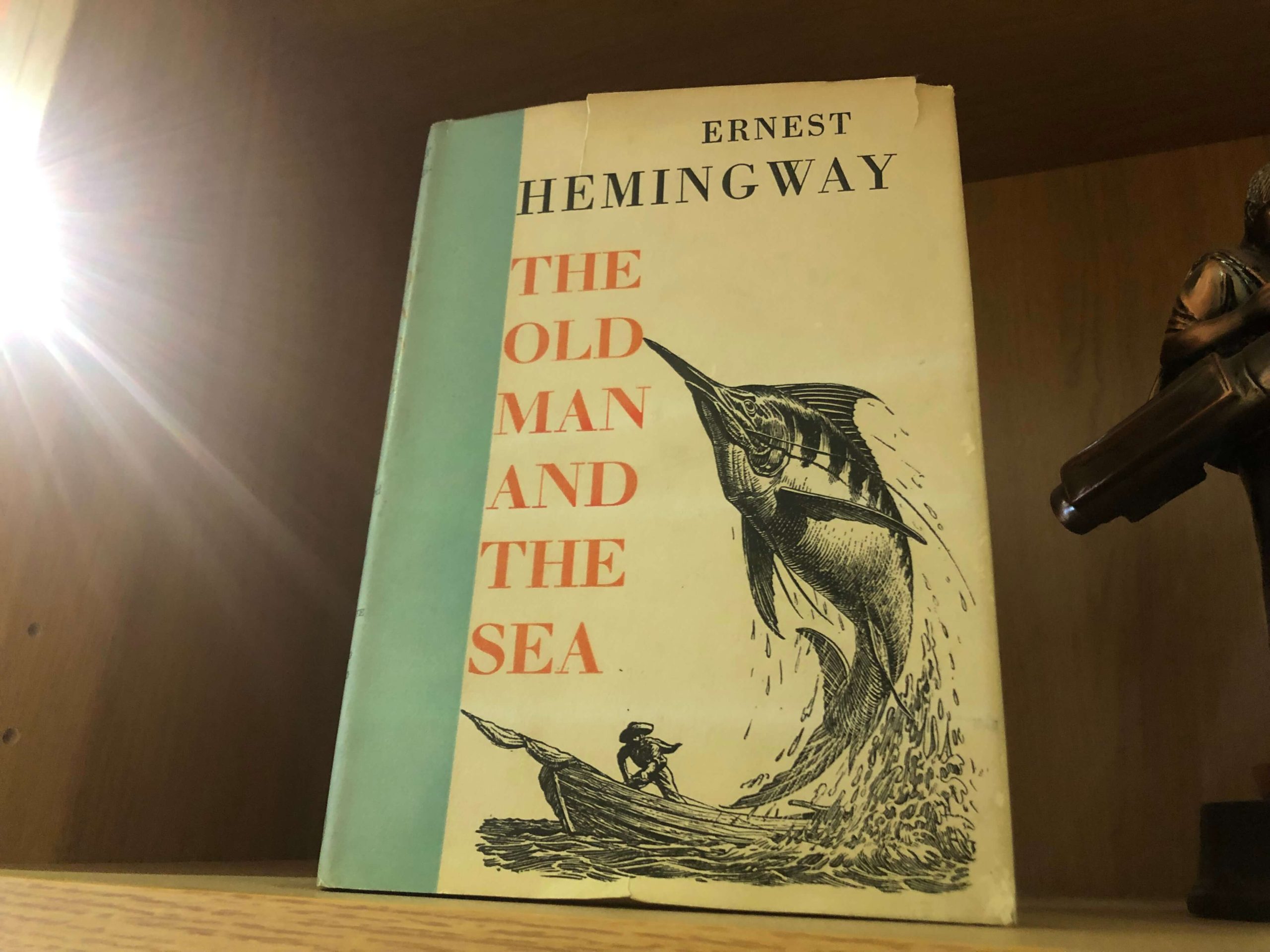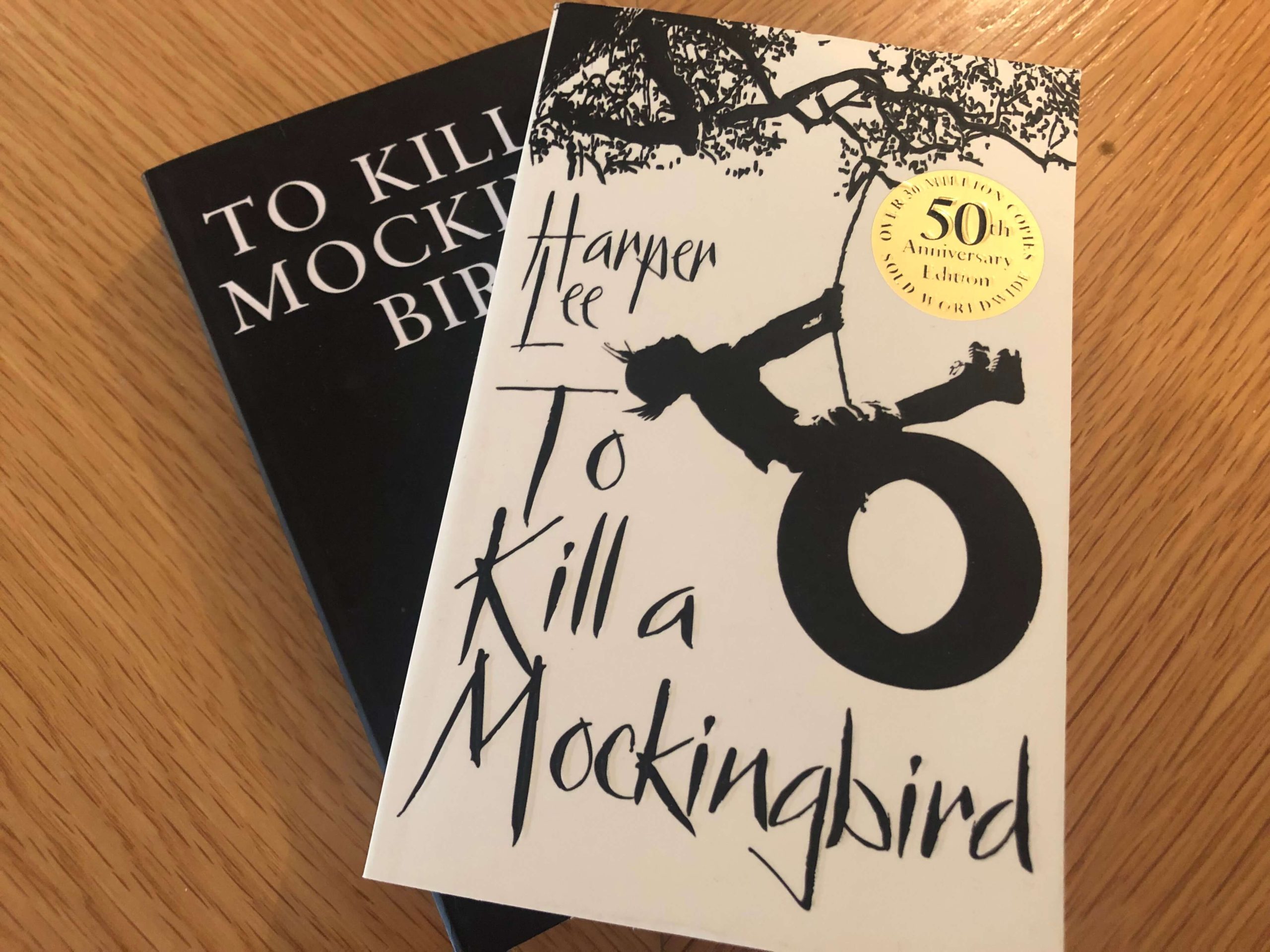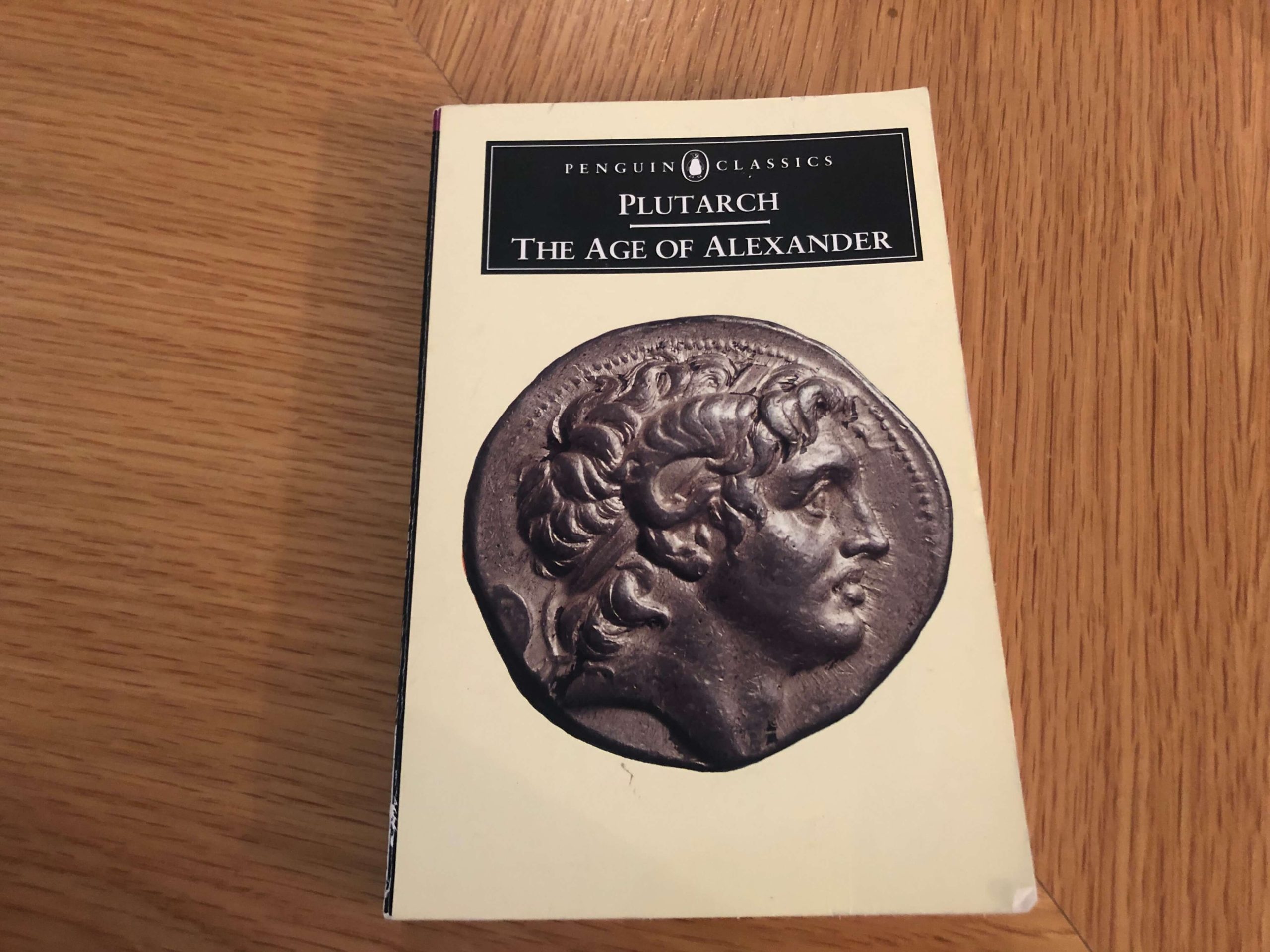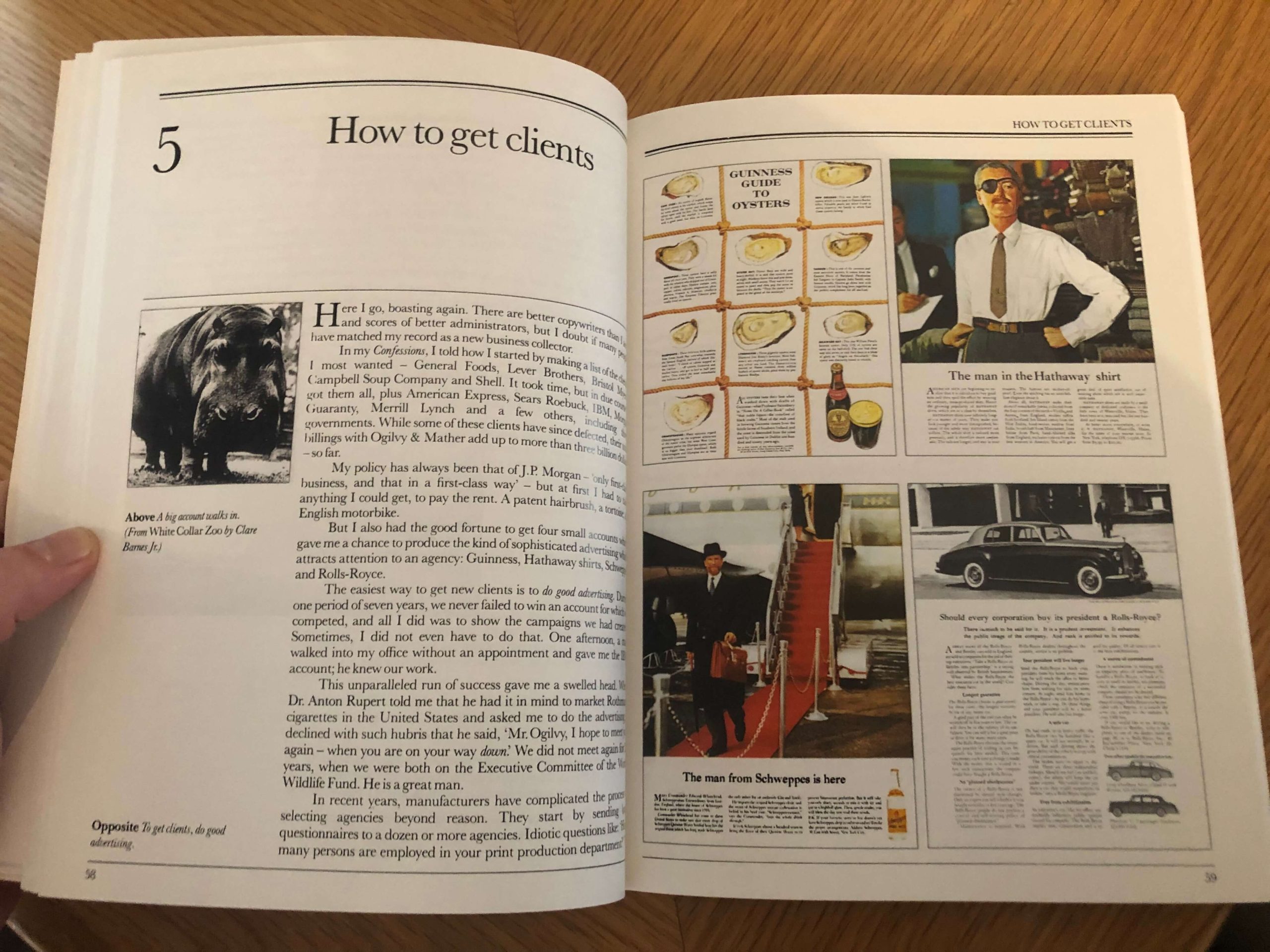Reading a book a week is a significant commitment when you pick big difficult books.
That pacing requires reading 67 pages a day to finish The Grapes of Wrath, 47 pages a day to finish Thus Spoke Zarathustra, and 60 pages a day to finish The Age of Alexander.
When you read properly, taking notes, making marginalia, considering what you consume, that’s over an hour of reading a day.
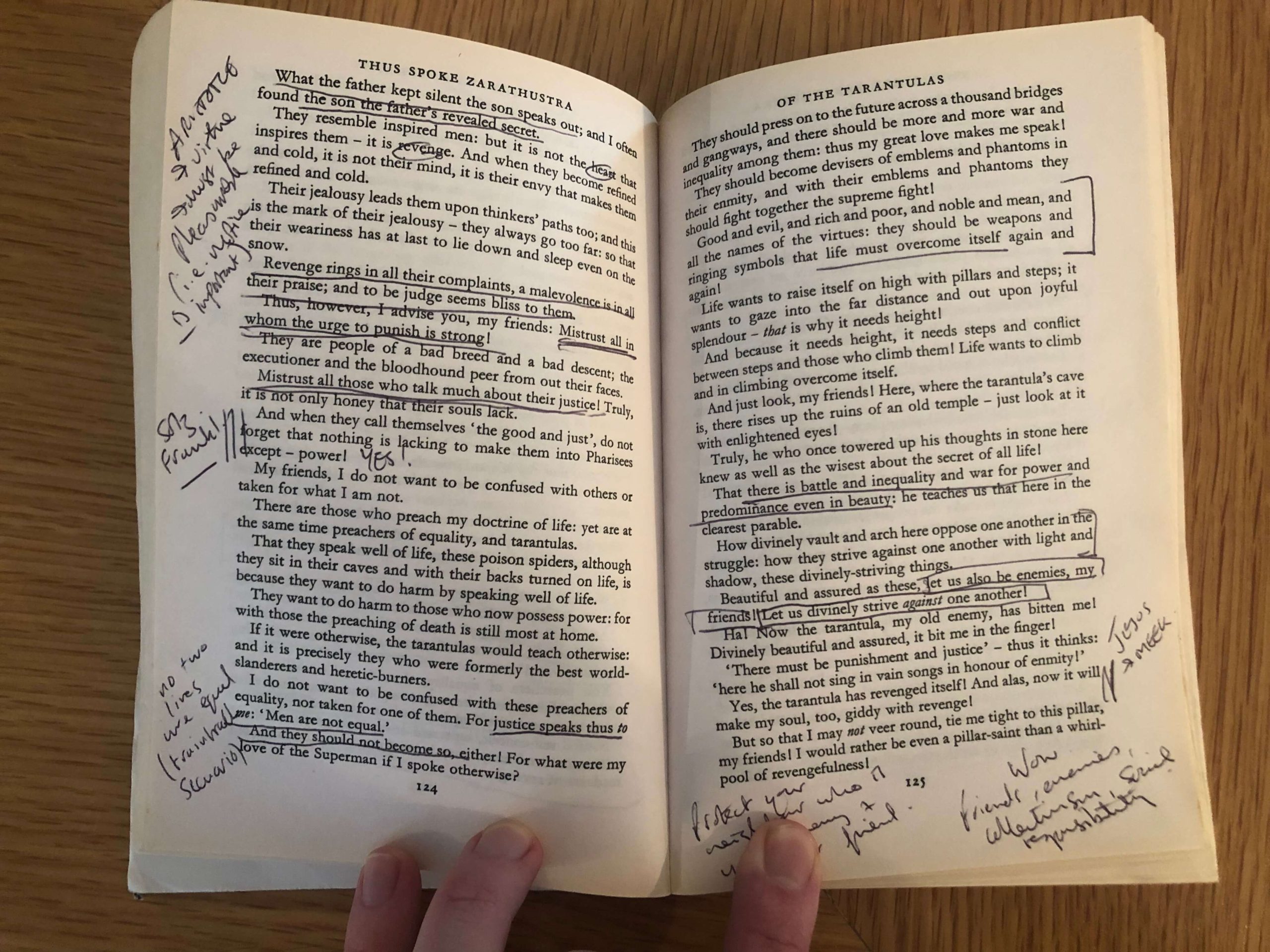
My marginalia for Nietzsche’s Thus Spoke Zarathustra.
One might argue that a week is too quick to consume heavyweights like Steinbeck, Nietzsche, and Plutarch.
And I might agree.
You want to live with these works long term.
But the goal of reading a book a week is a tight one because even failing to hit it results in a staggering amount of reading.
And the way I read involves consistent returning to the work in the form of book reviews and discussions.
Every book I read after is an attempt to connect these great works together, pitting the authors against each other in conversation.
I read Victor Frankl’s Man’s Search for Meaning half a decade ago (review here) and I still think and talk about it on a daily basis. That work was even the foundation for a friendship I hold dearly.
Reading and living intertwine.
This is a style of reading called “syntopic reading”.
It’s the deepest, most valuable reading you can do.
If you want to learn how to do it, I highly recommend you pick up a copy of the classic How to Read a Book by Mortimer Adler (one of my all-time favourite reads).
But why read a book a week?
The habit of daily reading, when done correctly, is no arbitrary one.
It’s not intellectual posturing. It’s work. It’s heavy-lifting for the brain and soul that results in feeling more robust, more capable, more creative.
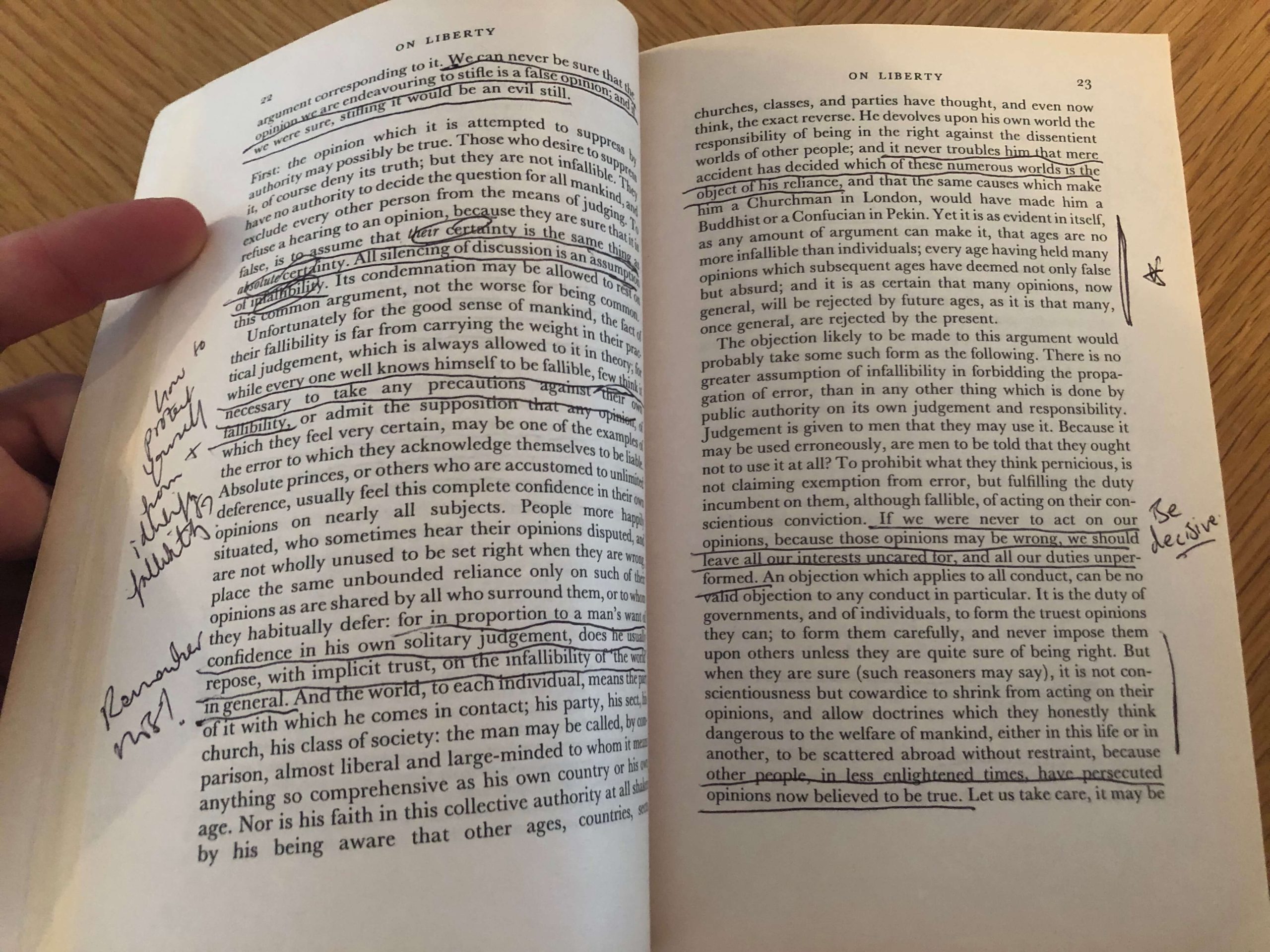
Marginalia for John Stuart Mill’s On Liberty.
Any long stretch of time involving intense daily reading for me has always been accompanied by greater feelings of clarity, peace, wisdom, and motivation.
It does take time to devote to a daily reading practice, but I find a strong correlation between increased input and output.
I write more when I read more.
Likely because my thinking improves.
If you’re currently watching an hour of television a day, you can swap that for an hour of reading and your life will improve.
Anyway, enough proselytising.
Here’s my TBR for the next two months.
On Liberty by John Stuart Mill
Add this to the ranks of philosophy I read as a teenager and never fully appreciated.
I picked this up the other day before bed and was immediately sucked in.
Mill writes with an enviable amount of clarity, persuasiveness, and power.
A kind soul shimmers through every sentence, and I find myself underlining liberally, nodding my head in emphatic agreement.
Amazing that a work written a century-and-a-half ago resonates so magnificently today.
I cannot wait to discuss this one further.
You can read On Liberty here.
Thus Spoke Zarathustra by Friedrich Nietzsche
Nietzsche’s another powerhouse I read but did not appreciate in my teenage years.
You need some life experience in order to understand him.
Only now do I feel Nietzsche in my blood.
There are so many passages that contain such timeless wisdom, you’d be astounded that this was not written yesterday. But I suppose the human condition has remained unchanged since time began, though those who understand it to its core are few.
Read the passage on the cave of tarantulas and tell me you don’t recognise the current world in those words.
And depth of philosophy aside, the words themselves are so profoundly poetic, so sadly poignant, so beautiful, that I’m compelled to learn German just to hear Nietzsche’s song in the original.
You can read Thus Spoke Zarathustra here.
The Sign of the Four by Arthur Conan Doyle
I picked up this Sherlock Holmes novella because it’s required reading for GCSE English in many schools across the UK and I felt like there were a lack of adequate resources about this story.
I’d like to read it and add to the discussion on it, hoping my analysis provides enough nuance that might be beneficial for anyone sitting those exams.
I’m currently thinking of making a video that breaks down Holmes’ analytical process of deduction.
If you would like an immensely enjoyable audiobook experience, I recommend the complete works read by Stephen Fry, which is easily the best deal on Audible (you can even get it for free through this link if you’re a newcomer to the service).
You can read The Sign of the Four here.
The Grapes of Wrath by John Steinbeck
I see this novel and East of Eden consistently listed as having some of the most moving prose and plot lines of all time.
The way people discuss Steinbeck alone makes me emotional. So I felt like it was time to see what all the fuss was about.
I’m only a few chapters in and am already swayed by the power of the prose, making ample marginalia where humanity seeps through the page.
You can read The Grapes of Wrath here.
My Voice Will Go With You by Milton Erickson
These are the teaching tales of the most influential hypnotherapist who has ever lived.
This book is a masterclass in persuasion (both of yourself and others), remedying maladies of the human soul like depression, grief, and anxiety, and a course in using the power of story to heal.
This might seem like a bit of an esoteric choice, but I implore you to pick up a copy.
It may be one of the most moving books you read in a long time.
Having read and re-read half of it so far, I cannot wait to write a long article on mindset tips from Milton Erickson.
You can read My Voice Will Go With You here.
The Old Man and the Sea by Ernest Hemingway
I have a vintage signed edition of this wonderful book.
Whatever you might think of Hemingway – dull, sparse style over even sparser substance, faux-masculinity so overwrought you can smell the poisonous fumes from the page – I believe his work harbours deep lessons for us all.
I’ve read this book many times, but I’m about due for a reread, this time with the aim to extrapolate some wisdom that youth would have made me overlook before.
You can read The Old Man and the Sea here.
To Kill A Mockingbird by Harper Lee
I have started and abandoned this book so many times.
But with a few influential people I respect citing this book as one of their favourites, coupled with Aaron Sorkin’s stage adaptation hitting London theatres, I decided I’m going to commit to finally getting to the bottom of this much lauded modern classic’s value.
You can read To Kill A Mockingbird here.
I Stared at the Night of the City by Bachtyar Ali
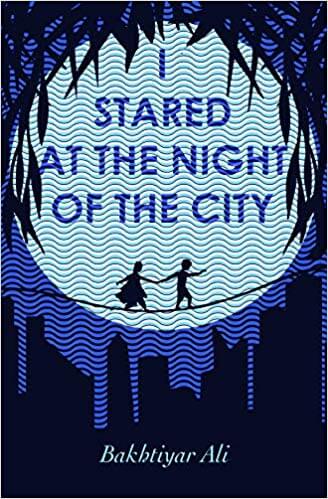 One of the greatest rewards I’ve found from having a book recommendation newsletter is that people recommend me books almost as often as I give out recommendations.
One of the greatest rewards I’ve found from having a book recommendation newsletter is that people recommend me books almost as often as I give out recommendations.
I make it a point to try and read everything someone recommends me.
And I’ve been blessed to receive some incredibly interesting recommendations of books that I wouldn’t have found myself.
One such book recommendation comes from an avid reader from Kurdistan who implored me to read a bunch of her favourite Kurdish writers.
I love reading diversely and try to make a point to pick up a good selection of books from lesser read nationalities each year, so this was a very welcome recommendation.
You can read I Stared at the Night of the City here.
The Age of Alexander by Plutarch
For the greatest lessons on leadership, turn to the history books.
Study the emperors and kings of ancient times, absorb their admirable qualities, dispense with their foibles and vices.
This study by Plutarch is a wellspring of timeless advice for anyone who wishes to advance ahead in their field.
I’ll also be writing up what lessons one can learn from this book once I’ve finished it.
You can read The Age of Alexander here.
Ogilvy On Advertising
In keeping with continuing to educate myself in writing persuasive and powerful copy, I’ve picked up this gorgeous volume from master ad-man David Ogilvy, replete with full-colour pictures of some of the most compelling ads in marketing history.
Check it out here.
Poetry
If I have the time, I’ll also be reading a few different volumes of poetry, focusing on works by Simon Armitage, Beatrice Garland, Imtiaz Dharker, Carol Rumens, James Methven, and Aaron Poochigian.
They don’t know this yet, but I’m reading them because I hope one day to interview these great poets.
Plays
And, of course, I’ll be reading as much Shakespeare as I have time for.
Pretty full-on schedule, am I right?
